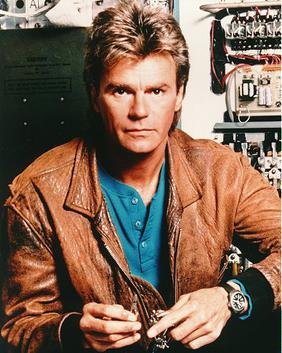Childhood Heroes
Do you have childhood heroes? One of mine is Angus MacGyver, played by the actor Richard Dean Anderson in the 80s TV series MacGyver.
The character of MacGyver is intelligent, can dismantle a bomb, speaks multiple languages, and is a very ingenious engineer.
Above all, MacGyver was a non-violent problem solver.
Even though the creator of the TV series, Lee Zlotoff, sometimes wrote scripts that had very creative solutions to problems that worked on screen, I doubt they would all work that well in reality. But Zlotoff did another thing that does work in reality.
The MacGyver episodes had to be filmed on a tight deadline, and Zlotoff often got stuck in his creative writing process. He noticed he would hardly ever find an insight or solution while trying to force it behind his desk. More often, he found creative ways to continue writing during or after a mildly stimulating activity. The activity could be anything simple: driving his car or showering, for example.
Zlotoff noticed that if he pre-loaded his conscious brain with a situation to solve, his subconscious brain would find a solution while he occupied his conscious brain with something else.
The subconscious part of your brain is a far better problem solver than your conscious brain. It’s faster, can handle almost unlimited information, and explores more far-fetched creative solutions.
All Zlotoff had to do after the subconscious had done its work was return to his desk to re-engage the conscious brain while writing down his solution.
Identify a problem, load the systems in your brain that do pattern recognition with information they might need, let it sit for some time while you do a manageable activity, and then free-write your way to a solution. He calls this “the MacGyver” method, and I think it’s a real-life, non-violent approach to solving the problem of creative blocks.
